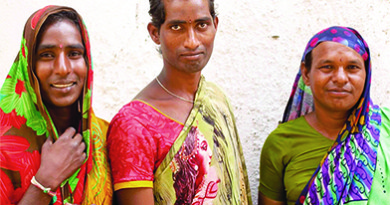The Biggest Threat We Face Right Now Is Not Terror, It’s Polarization
By: Matt Williams
The terror attacks mounted by radicalized groups around the world are petrifying. By attacking civilians in what would normally be a benign environment, they induce feelings of terror in the wider population, which is ultimately their weapon of choice. As horrific and real and tangible the attacks are, the reality is that they are small in nature. Yet the perception is that they are large and therefore many are at risk. For every actual casualty there are many thousands that are terrorized and it is through this t that the real threat presents itself, and it is the polarization of communities and cultures.
For as long as terrorists have existed, which is many centuries, their goal has been to achieve the maximum effect in relation to the number of casualties created. Terrorist attacks do just that. A terrorist attack resulting in less than 200 deaths will lead to messages of sympathy from heads of state as well as prompt changes to legislation, not just in the target nation, but likely in others as well as a result of their shocking and unpredictable nature. The more significant reactions, though, will come from the members of the public themselves.
While the involvement of political leaders and the reactions of governments are significant, they are not necessarily as significant as the changes in individual behaviour can be. At one end of the spectrum, people may choose to avoid public events like sports or music concerts, or they will not frequent restaurants or pavement cafes in the same manner that they once had.
This may not seem like much, but they are having their freedom and their way of life impacted. Much more alarming however, at the other end of the spectrum, communities can quite rapidly become polarized.
As socio-cultural groups become identified as being involved with or responsible for terrorist attacks, other groups will come to distrust and even resent them. Little by little the two groups will be pushed apart, creating divisions that are far more dangerous than the terrorist attacks themselves.
Although it is accurate to say that the Paris attacks were committed by radicalized Muslim extremists, it is absolutely not accurate to say that all Muslims are radicalized extremists. But the importance and the need for timely and robust action to investigate these attacks, and prevent future attacks from occurring is something necessary, and we must all strive to resist the polarization that is a real and very tangible threat to our future security.
In the aftermath of the 13th November Paris attacks we have seen many positive acts by many individuals. From tweets offering shelter in Sikh Temples for those unable to get home as a result of the attacks to people adding the French or Lebanese flag to their Facebook profile picture with the hashtag #PrayForFrance, or #PrayfortheWorld, there have been countless acts that show support for those affected. Sadly, there have also been calls to restrict immigration and other unfounded negative responses aimed at Muslim communities, many of whom have been residents in Western countries for generations.
With less than 1% of Muslims being radicalized and only a percentage of those prepared to commit acts of violence, blaming all Muslims for the terrorist attacks is not just a mass over generalization but it is also a damaging and polarizing act. And when any cultural, ethnic or religious group starts to feel isolated, there is a very real risk that communities will move further apart, becoming increasingly polarized and as they do, both levels of understanding and trust decrease.
This doesn’t mean that we should throw open the gates and admit uncontrolled numbers of Syrian and other immigrants in, but we must not isolate existing communities either. As long as we do we will be creating the exact conditions needed for radicalization to fester – creating the biggest security risk that we have seen in recent years.
Besides the radicalization won’t necessarily be confined to a single group; it can happen in any group, as wherever we see isolated and polarized communities in the world we also see conflict. As we face the challenges of radicalization we must work harder than ever to ensure that our communities don’t become polarized, because if they do, the terrorists win.
And then we all lose.




